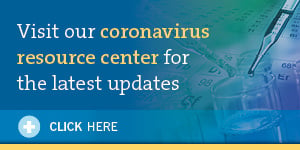The United States Department of Health and Human Services (“HHS”) Office of General Counsel (“OGC”) recently issued two advisory opinions (20-03 and 20-04) interpreting the scope and application of liability immunity under the Public Readiness and Emergency Preparedness (“PREP”) Act. Opinion 20-04 emphasizes the breadth of PREP Act immunity and describes its potential application to businesses, schools, and places of worship involved in the COVID-19 response, in addition to medical product manufacturers and distributors, health care professionals, and other health care entities. Opinion 20-03 addresses certain matters relating to pharmacists’ and pharmacy interns’ administration of vaccines recommended by the Advisory Committee on Immunization Practices (“ACIP”). Although these advisory opinions are nonbinding and lack the force of law, they may inform courts’ future interpretation of PREP Act immunity.
Overview of PREP Act and COVID-19 Declaration
The PREP Act authorizes the Secretary of HHS (the “Secretary”) to issue a declaration to provide liability immunity under federal and state law to certain individuals and entities (“Covered Persons”) against any claim of loss caused by, arising out of, relating to, or resulting from the manufacture, distribution, administration, or use of certain medical countermeasures (“Covered Countermeasures”). The liability immunity extends to claims under both federal and state law and to actions brought in both federal and state court.1 It does not provide protection for death or serious injury caused by willful misconduct.2
On March 10, 2020, the Secretary issued a declaration, with a retroactive effective date to February 4, 2020, with respect to the spread of SARS-CoV-2, or a virus mutating therefrom, and the resulting disease, COVID-19 (the “Declaration”).3 The Declaration was subsequently amended on April 10, June 4, and August 19.4
Covered Countermeasures under the PREP Act and the Declaration include, among other things, a drug, device, or biologic (as defined in the Federal Food, Drug & Cosmetic Act (“FDCA”)) used to treat, diagnose, cure, prevent, or mitigate COVID-19 provided that the product is:
- approved or cleared under the FDCA or licensed under the Public Health Service Act;
- the object of research for possible use in curing a pandemic or epidemic under an investigational new drug application (“IND”) or investigational device exemption (“IDE”); or
- authorized for emergency use under the FDCA.5
Covered Persons under the PREP Act include “manufacturers,” “distributors,” “program planners,” and “qualified persons” (each of which is specifically defined), as well as their officials, agents, and employees.6
According to the “Limitations on Distribution” set forth in the Declaration, the liability immunity afforded to Covered Persons applies only to Covered Countermeasures that are related to the following:
- Present or future federal agreements; or
- Activities authorized in accordance with the public health and medical response of the “Authority Having Jurisdiction” to prescribe, administer, deliver, distribute or dispense the Covered Countermeasures following a Declaration of an Emergency.
Advisory Opinion 20-04
This opinion addresses two key PREP Act concepts. First, it interprets the statute’s definition of “program planner.” Second, the opinion explains what it means for an activity to have been “authorized” by an “Authority Having Jurisdiction.”
A program planner is a category of Covered Person under the PREP Act. It means a state or local government or other person or entity that supervises or administers a program with respect to the administration, dispensing, distribution, provision or use of a Covered Countermeasure, including a person who provides a facility to administer or use a Covered Countermeasure in accordance with the Declaration.7 Opinion 20-04 explains that “any individual or organization can potentially be a program planner and receive PREP Act coverage” and specifically lists private businesses, public and private transportation providers, public and private schools, and religious organizations as being eligible for PREP Act coverage.
Under the Declaration, an Authority Having Jurisdiction is the “public agency or its delegate that has legal responsibility and authority for responding to an incident, based on political or geographical (e.g., city, county, tribal, state, or federal boundary lines) or functional (e.g., law enforcement, public health) range or sphere of authority.” Authorities Having Jurisdiction include, among others, HHS, the Centers for Disease Control and Prevention (“CDC”), and state and local governments and departments of health. Opinion 20-04 states that an Authority Having Jurisdiction may “authorize” activities through, among other things, guidance, requests for assistance, agreements, directives, or other arrangements. It further explains that a Covered Person must comply with public health guidance from an Authority Having Jurisdiction over the person’s activity or location in order to qualify for PREP Act immunity. If there are conflicts between guidances from more than one applicable Authority Having Jurisdiction and no order of priority in such guidances, then PREP Act coverage will apply to a Covered Person following any of the guidances. On the other hand, if applicable law or the guidances themselves explain which authority’s guidance takes precedence, a Covered Person must follow the guidance of the Authority Having Jurisdiction that takes precedence in order to obtain PREP Act coverage.
Opinion 20-04 helpfully describes several hypotheticals of program planners using Covered Countermeasures according to public health guidance from an Authority Having Jurisdiction:
- A private university’s COVID-19 testing program uses a test that has received emergency use authorization from FDA and follows the testing recommendations of the local Authority Having Jurisdiction, which recommends testing less frequently than state or federal Authorities Having Jurisdiction. Per the hypothetical, neither state or federal law nor the state or federal guidances preempt or supersede the guidance from the local Authority Having Jurisdiction. A student gets COVID-19 and sues the university, claiming that the university’s failure to follow state or federal guidances caused the student’s injuries. Opinion 20-04 concludes that the university is a program planner and, by following the guidance of the local Authority Having Jurisdiction, the private university has PREP Act immunity.
- A grocery store requires its workers to wear cloth face masks covered by an FDA emergency use authorization only where other social distancing measures are difficult to maintain, which is consistent with certain recommendations in CDC guidance for grocery store workers. However, the CDC guidance also directs workers to follow all applicable local, state, and federal regulations and public health agency guidelines. In this hypothetical, the county department of health’s guidance recommends that grocery store workers wear a cloth face mask and maintain social distancing. A customer gets COVID-19 and sues the grocery store, claiming that its failure to follow the county guidance contributed to the customer’s injuries. Because the grocery store failed to follow the more stringent county guideline, the grocery store does not have the benefit of PREP Act immunity. Notably, Opinion 20-04 never addresses how the grocery store would satisfy the definition of program planner in this hypothetical.
- CDC identifies the populations with priority to receive the COVID-19 vaccine while there are limited doses available, and a pharmacy administers the vaccine in accordance with that prioritization. An individual who does not receive the vaccine because of this prioritization gets COVID-19 and sues the pharmacy. By administering the vaccine pursuant to CDC’s prioritization, the pharmacy has complied with the guidance of an Authority Having Jurisdiction and receives the benefit of PREP Act immunity. Opinion 20-04 acknowledges that this conclusion is inconsistent with a 2014 New York state court decision addressing a similar factual scenario involving an H1N1 vaccine shortage.8 HHS OGC bluntly states: “The court was wrong.” Opinion 20-04 asserts that “administration” under the PREP Act includes, among other things, activities relating to management and operation of a vaccination program pursuant to an Authority Having Jurisdiction, such as following CDC directions on whom to vaccinate when there are limited doses.
Advisory Opinion 20-03
This opinion addresses vaccination-related questions that have arisen following the August 19 amendment to the Declaration, which authorizes state-licensed pharmacists to order and administer, and pharmacy interns to administer, ACIP-recommended vaccines to children aged three to 18, notwithstanding state laws to the contrary, if the pharmacists and interns comply with certain federal standards.
Opinion 20-03 advises that state licensing and scope-of-practice laws that are less stringent than the federal standards described in the August 19 amendment are not preempted. On the other hand, state laws that require a pharmacist to enter into a collaborative-practice agreement with a licensed physician would be preempted if the requirement “prohibits or effectively prohibits” a pharmacist from ordering and administering vaccines as authorized by the August 19 amendment. Lastly, Opinion 20-03 explains that drugs used to counteract an adverse reaction to an ACIP-recommended vaccine, such as epinephrine, are considered Covered Countermeasures and are subject to PREP Act immunity.
Key Takeaways
These new advisory opinions reflect HHS OGC’s views regarding the reach of the PREP Act and the Declaration. Opinion 20-03 interprets the scope of PREP Act immunity and preemption in a manner that should further encourage the administration of ACIP-recommended vaccines to children by pharmacists and pharmacy interns, as authorized by the Declaration. Even more significantly, Opinion 20 04 demonstrates the broad potential application of PREP Act immunity to entities that may not directly manufacture, administer, or use Covered Countermeasures but that are nevertheless involved in the response to the COVID-19 pandemic as program planners and follow the guidance of public health authorities. This opinion also illustrates the need for entities to understand all of the potentially applicable public health guidances that may apply to their activities and to consider carefully which guidance to follow in order to be eligible for PREP Act coverage. Given the frequency with which public health guidance has been developed and modified during the pandemic, the opinion suggests that entities hoping to avail themselves of PREP Act coverage should frequently monitor such guidance for updates and maintain records of the guidance they followed during a given time period.
The ultimate impact of these nonbinding advisory opinions remains to be seen. Although to date there has been little case law interpreting the scope of PREP Act immunity under the Declaration, the extent to which courts are persuaded by HHS OGC’s advisory opinions will be important to follow in the months and years to come.
If you have any questions, please contact any member of Ropes & Gray’s FDA regulatory or health care practices or your usual Ropes & Gray advisor.
- 42 U.S.C. § 247d-6d(a).
- 42 U.S.C. § 247d-6d(d).
- 85 Fed. Reg. 15,198 (Mar. 17, 2020).
- See 85 Fed. Reg. 21,012 (Apr. 15, 2020); 85 Fed. Reg. 35,100 (June 8, 2020); 85 Fed. Reg. 52,136 (Aug. 24, 2020).
- 42 U.S.C. § 247d-6d(i)(1), (i)(7).
- 42 U.S.C. § 247d-6d(i)(2).
42 U.S.C. § 247d-6d(i)(6).
- Casabianca v. Mt. Sinai Med. Ctr., 2014 WL 10413521 (N.Y. Sup. Dec. 12, 2014) (holding that PREP Act immunity “only applies to the actual use of the vaccine”).
Stay Up To Date with Ropes & Gray
Ropes & Gray attorneys provide timely analysis on legal developments, court decisions and changes in legislation and regulations.
Stay in the loop with all things Ropes & Gray, and find out more about our people, culture, initiatives and everything that’s happening.
We regularly notify our clients and contacts of significant legal developments, news, webinars and teleconferences that affect their industries.




